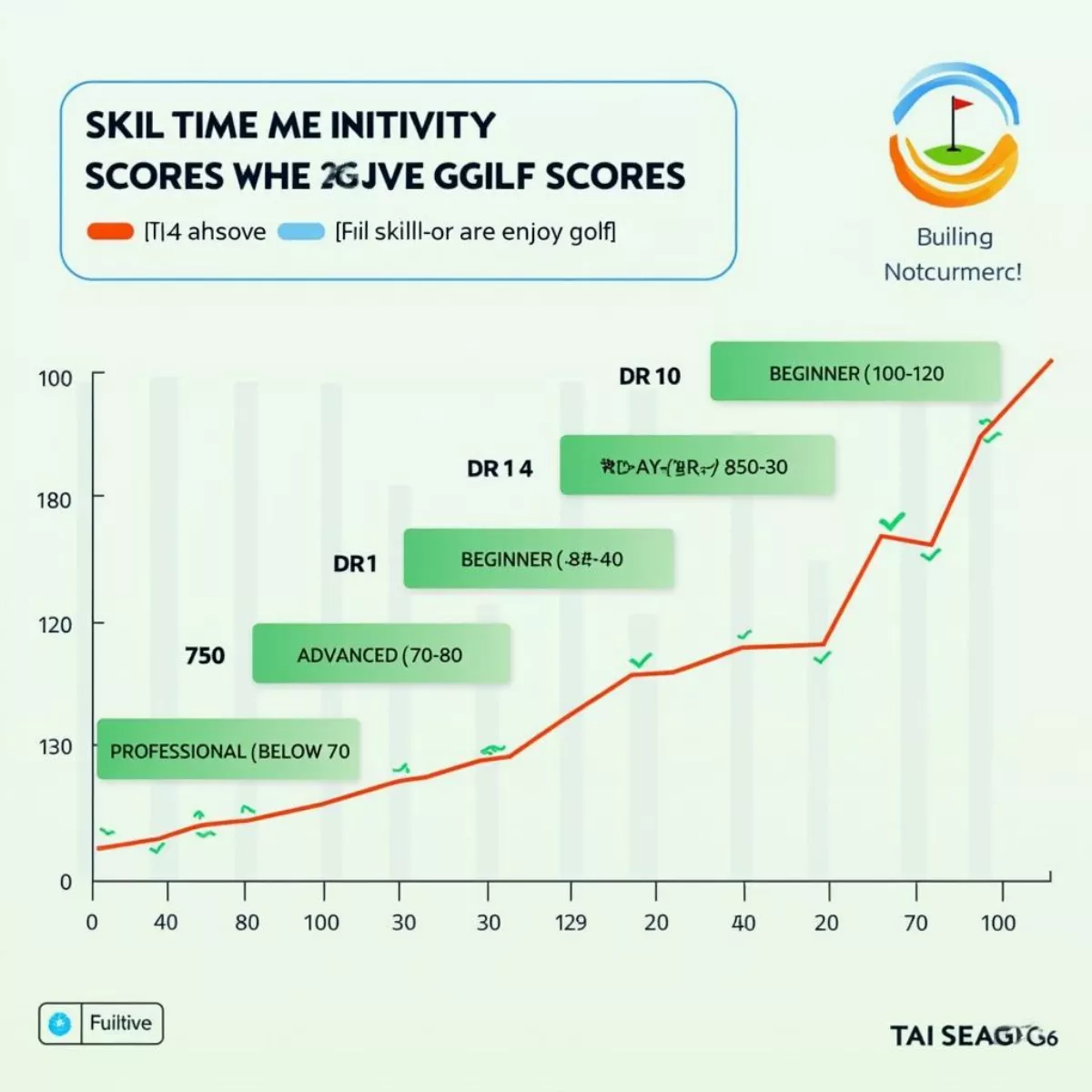Golf can be a challenging sport, even for its most seasoned players. If you’re a beginner or have been playing casually, you might be asking yourself, “What is the average score for a golfer?” Understanding average scores can provide insight into your game and help you set realistic goals for improvement.
In this article, we’ll break down various aspects of average golf scores, including what influences these scores, how player skill levels factor in, and what can be done to improve your performance. Let’s dive in!
Understanding Golf Scores
Before we tackle what the average score is, let’s first clarify how golf scoring works.
In golf, lower scores are better. The game is typically played over 18 holes, with players aiming to complete the course in as few strokes as possible. Each hole has a par, which is the number of strokes an expert golfer is expected to take to complete it.
- Birdie: 1 stroke under par.
- Par: Equal to par.
- Bogey: 1 stroke over par.
- Double Bogey: 2 strokes over par.
The total score for a round is the sum of strokes taken on each hole. Keeping this in mind will help you understand what an “average score” means.
Average Scores by Skill Level
Golfers can be categorized into various skill levels, affecting their average scores:
| Skill Level | Average Score |
|---|---|
| Beginner | 100 – 120 |
| Intermediate | 80 – 100 |
| Advanced | 70 – 80 |
| Professional | Below 70 |
- Beginners: With little to no experience, beginners may average 100 to 120 strokes. Learning the basics, improving technique, and getting familiar with the rules are crucial.
- Intermediate golfers: These players might average between 80 and 100 strokes. They start to understand course management and improve their short game.
- Advanced golfers: The average for skilled golfers ranges from 70 to 80 strokes. At this level, golfers usually have a good grasp of their swing and can score well consistently.
- Professionals: A professional golfer’s average usually falls below 70 strokes, thanks to years of practice, experience, and natural talent.
 Golf Score Chart
Golf Score Chart
Factors Influencing Average Scores
Several aspects can influence a golfer’s score, ranging from personal skill to external conditions. Here are some major factors:
- Course Difficulty: The design and condition of the course have a considerable impact. Courses with more hazards, longer holes, and tricky greens can lead to higher scores.
- Weather Conditions: Wind, rain, temperature, and humidity can also affect play. Wind can alter ball trajectory, while rain can make greens slower or muddy.
- Equipment: The quality of clubs and balls can enhance performance. Investing in properly fitted equipment is important for optimal play.
- Practice and Experience: More practice leads to improved confidence and skills. Regular play helps incorporate learned techniques effectively.
Tips to Improve Your Golf Score
If you’re aiming to lower your average score, here are some actionable tips:
- Practice Regularly
- Dedicate time to practice putting, chipping, and driving. Even short sessions can be beneficial.
- Work on Course Management
- Learn how to choose the right club and shot based on the hole layout. Sometimes playing safe yields better scores.
- Focus on Short Game
- Many strokes can be saved around the green. Prioritizing pitching and chipping will improve your overall score.
- Set Realistic Goals
- Instead of aiming for a single “perfect” round, set incremental goals. Aim to improve by a stroke or two each outing.
- Analyze Your Game
- Keep track of your scores and identify trends. Are you struggling on par 3s or par 5s? Understanding your weaknesses can guide practice.
 Golfer Practicing Chipping
Golfer Practicing Chipping
Getting the Most from Your Golf Game
Improving your score takes time and dedication. As you set out to better your average, consider seeking out professional lessons or joining a local golf club. Engaging with fellow golfers can also provide new insights and motivation.
It’s worth remembering that golf is as much about enjoyment as it is about competition. Take the time to appreciate the game and enjoy your progress, no matter how small!
Key Takeaways
- Average scores vary by skill level:
- Beginners: 100-120
- Intermediate: 80-100
- Advanced: 70-80
- Professionals: Below 70
- Several factors like course difficulty, weather, equipment, and experience influence scores.
- Implement strategies such as regular practice, better course management, focusing on short game, and setting realistic goals to improve your score.
FAQ
1. What is the average score for a high school golfer?
Average scores can range from 75 to 95 for competitive high school golfers, depending on skill level and experience.
2. How can I improve my golf score quickly?
Focus on your short game, practice putts from various distances, and consider taking lessons from a professional.
3. How often should I play to improve?
Regular play, ideally at least once a week, combined with practice sessions, will significantly enhance your skills.
4. What is a good golf score for a weekend player?
Many casual golfers aim for scores around 90-100. If you play consistently, lowering your average can be a realistic goal.
5. Does playing on different courses affect my score?
Yes, different courses present unique challenges. Familiarity with a course can impact your performance positively.
6. What equipment should beginner golfers consider?
Beginners should invest in a basic set of clubs (driver, irons, putter), comfortable shoes, and golf balls that suit their playing style.
7. How can I track my golf scores effectively?
Use apps or journals to record your scores, noting specific strengths and weaknesses for each round.
8. Does fitness level affect golf scores?
Yes, having a good level of fitness can help with swing power and endurance, potentially lowering scores.
9. What role does mental game play in golf?
Your mindset can significantly affect performance. A positive attitude helps in dealing with challenges during play.
10. Can guided practice help improve my game?
Absolutely! Professional golf coaching can provide personalized tips and plans tailored to your needs.
 Golfers Taking a Lesson
Golfers Taking a Lesson
By understanding what average scores mean and how they relate to various skill levels, you’ll be better equipped to improve your game. Enjoy the process—every stroke counts in both golf and in your journey toward improvement!

